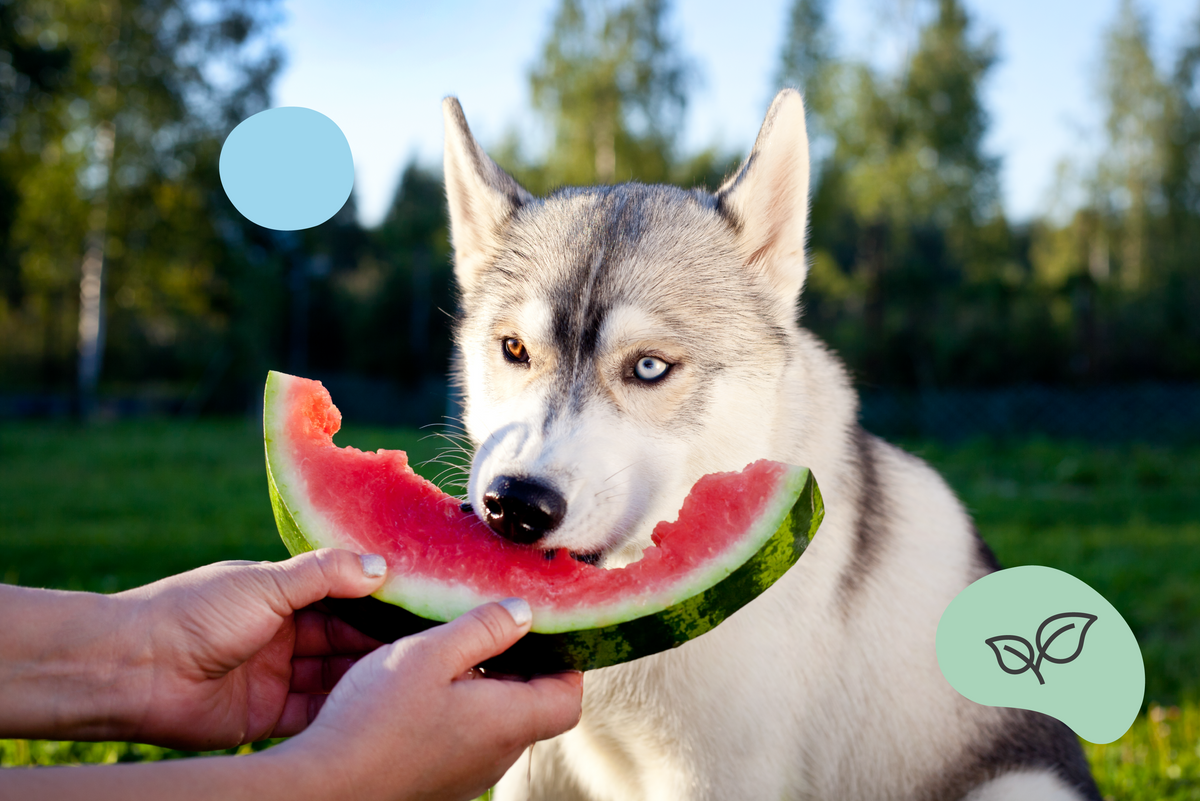Can you give melon to a dog? Why the answer could be no

As summer approaches, it can be tempting to share a refreshing slice of melon with your faithful companion. However, although fruit and vegetables are a crucial part of the human diet, introducing them to our dogs can be a tricky business. Dogs, descended from wolves, are originally carnivores and need a diet consisting mainly of proteins derived from meat. So, is melon a safe choice for them, or are there concerns to consider?
Melon: the right choice for your dog?
It's important to understand that not all fruit and vegetables are suitable for dogs; some can even cause health problems. In this article, we'll focus on melon. Is it a suitable fruit or should it be avoided?
Why melon may not be the best choice for your dog
Although rich in vitamins A and C and water, melons also contain a certain amount of sugar. Despite its low sugar content compared with other fruits (5-10%), excessive consumption can still contribute to excessive weight gain and possibly obesity in dogs. What's more, as with many other fruits and vegetables, melon is a source of fibre, which, although beneficial in moderate quantities, can cause digestive problems if consumed in excess.
Melon and dogs: a question of moderation
Although melon is not toxic for dogs, it should not be given in large quantities. Although the benefits may seem attractive, the drawbacks can outweigh the benefits if consumption is not controlled. In fact, just as excessive consumption of any sweet food can lead to weight problems and obesity in dogs, melon is no exception.
It is therefore advisable to give your dog only small quantities of melon at a time, if you choose to do so, to avoid any risk of health problems.
A safer alternative to melon for dogs: watermelon
Looking for a refreshing fruit that's good for your dog during the summer season? Watermelon could be a sensible alternative to melon. Less sweet but just as hydrating, watermelon offers many benefits for our four-legged friends. Watermelon is made up of around 90% water, making it an excellent option to help keep your dog hydrated during the warmer months. As well as being rich in water, watermelon is also a source of vitamins A and C, just like melon, but it has the added benefit of being lower in sugar.
The benefits of watermelon for dogs
What's more, watermelon is also a source of fibre, which is essential for supporting good intestinal health in your dog. However, unlike melon, watermelon has a lower fibre content, making it a safer option for dogs with intestinal problems or sensitive digestion. It's crucial to note, however, that just like melon, watermelon should be fed to your dog with care. Make sure you remove all the seeds before giving it to your dog, as they can cause intestinal obstruction. What's more, watermelon should always be served in small portions to avoid the risk of choking.
To recap: is melon a good option for your dog?
While melon may seem a tempting option, its sugar and fibre content can cause problems if eaten in excess. If you choose to give your dog melon, do so sparingly and always under supervision. It's always best to give your four-legged friend a balanced diet.
For more nutritious treat options for your dog, discover the Marly & Dan range of products. Designed with your dog's health in mind, Marly & Dan offers healthy alternatives to spoil your dog while taking care of his health.
Remember, although some fruit and vegetables can complement your dog's diet, they should never replace a balanced diet. Marly & Dan products are an excellent option to complement your dog's diet and ensure his well-being.


